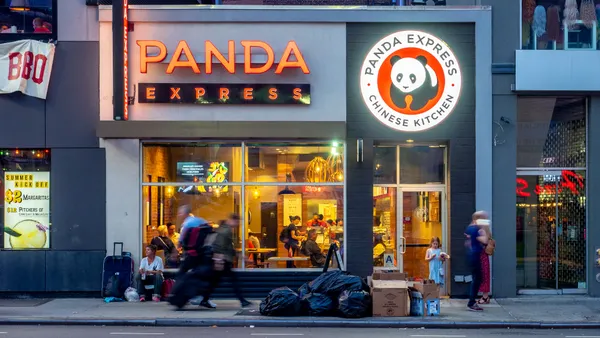Dive Brief:
- McDonald’s U.S. same-store sales rose 8% during Q3 thanks in part to strategic menu price increases, which have varied by location, CEO Chris Kempczinski told investors on Monday. The average pricing level for 2023 will be just over 10%, he said, and the chain’s rate of increase has slowed as inflation ebbs.
- Diners who make $45,000 and under have become more price sensitive due to inflationary pressure, and this subcategory had negative traffic growth, Kempczinski said. Traffic overall was slightly negative in Q2 and Q3, but is up compared to 2021, he said.
- Kempczinski said it’s unclear how much franchisees will need to increase pricing in California when AB 1228’s $20 fast food minimum wage takes effect in April, but said “there will certainly be a hit in the short term to franchisee cashflow” in the Golden State.
Dive Insight:
Though AB 1228 represents an impending disruption to McDonald’s California business, it could also pose an opportunity to gain market share in the region, Kempczinski said. The burger chain believes it’s better positioned than QSR rivals to absorb the impact of these required wage hikes, which could “actually accelerate our growth in California,” he said.
So far, the chain hasn’t seen price resistance from its overall customer base in major markets, suggesting that the company’s value proposition is holding strong in the current inflationary environment.
“We’ve also got lots of things that go into value, it goes beyond just price,” Kempczinski said. “It incorporates delivering a better customer experience, which we're doing through faster service times [and] improved hospitality.”
Greater productivity could help mitigate store-level costs, and McDonald’s has already made changes — such as phasing out self-serve drink stations and moving away from the Dollar Drinks promotion — to ease pressure on franchisees.
But AB 1228 will still be challenging at the store-to-store level. The National Owners Association, which represents American McDonald’s franchisees, estimates that the legislation will cost each unit in California about $250,000 per year, CNBC reports.
Competitors are feeling the squeeze, too. Chipotle CFO Jack Hartung said on an earnings call that the chain would need to hike prices in the mid-to-high single digits in California. Restaurant Dive estimates that these costs in the Golden State, which represents about 15% of Chipotle’s business, could equal $74 million annually.












